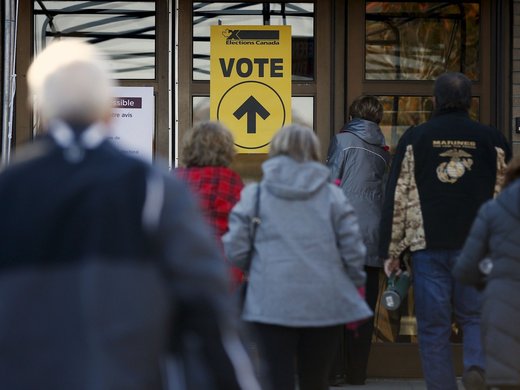Latin America has not been spared the anti-establishment waves that washed across Europe and North America. Voters across the region have shown frustration with old-school parties, particularly in countries plagued by corruption, insecurity and economic inequality. As a result, from El Salvador to Chile, a new wave of younger politicians is rising to power. This rejuvenation of Latin American politics could conceivably bring needed change, particularly if incoming leaders were to take on previously neglected issues that voters care about, such as climate change and women’s rights. But while Chile’s 36-year-old president Gabriel Boric seems on a path to tackle long-existing inequalities, Brazil, Honduras and El Salvador are showing worrying signs of democratic decline.
Across the political spectrum, the new generation of younger politicians is tapping into anti-establishment sentiments and desire for change. Where they differ is in their savvy use of information and communication technologies and their unconventional, less formal forms of engagement. In Brazil, Honduras and El Salvador, this use has been accompanied by widespread disinformation strategies, online threats and even the use of spyware against civil society and journalists regarded as opponents.
According to researcher Manuel Meléndez-Sánchez, this style of doing politics could be described as “millennial authoritarianism,” which, as he puts it, blends familiar populist and authoritarian tactics with youthful branding on social media.
Is this truly a new phenomenon? In 2019, a New York Times article by Max Fisher and Amanda Taub entitled “How YouTube Radicalized Brazil” argued that Brazil’s far-right president, Jair Bolsonaro, could not have risen to power without the platform’s recommendation system and its tendency to boost far-right content. Around the same time, in a study on Latin America, researchers Eugenia Mitchelstein, Mora Matassi and Pablo Boczkowski warned against the Sisyphean cycle of technology panic — that is, the belief that democratic progress could become undone by the latest technology, in this case, all-powerful social media. They make the case that in Latin America, social media has amplified existing political patterns rather than created new ones. Researcher Zeynep Tufekci describes YouTube as “one of the most powerful radicalizing instruments of the 21st century.” But to what extent does social media play a role in the current waning of democracy in several Latin American states?
While the share of citizens who use social media varies greatly across Latin America, platforms such as Facebook, WhatsApp, Twitter and TikTok have allowed people in the region to become more politically and socially engaged. Simultaneously, when smartphones collide with socio-economic crises, frustrated voters and corrupt traditional parties, it can have adverse effects.
Brazil
Brazilian President Jair Bolsonaro, who has earned the nickname “Trump of South America,” has made international headlines for his unabashed authoritarian style, including on social media. He may be 66 years old, but the term “millennial authoritarian” could apply to him, thanks to his social-media savvy and “hipness.” During the 2018 elections, then-candidate Bolsonaro was a sideline legislator who, based on election rules, was only allowed 48 seconds of unpaid political ad time on public TV and radio per week.
To bypass this barrier, he used social media more than any of the other candidates. We should note that Bolsonaro entered politics at a rather unique moment of Brazil’s history; the country was still experiencing the effects of the 2014 economic recession, political corruption was high, and homicides were on the rise. Also, Brazilians’ trust in their institutions was at a 10-year low. Bolsonaro came onto the scene claiming to have solutions.
Brazil’s information and election ecosystem was also ripe for a candidate like him. Brazilians were already highly connected via social media, including poorer populations with mobile-only access. While television is still a primary means of information, in 2018 WhatsApp was used by 60 percent of the population, closely followed by Facebook at 58 percent. Bolsonaro jumped on the bandwagon of a growing hyper-partisan internet environment and made use of social media platforms that amplify provocative claims and inflammatory speech. WhatsApp proved particularly useful, thanks to the platform’s end-to-end encryption and private groups. Bolsonaro and his backers used WhatsApp groups to spread their narratives, including claims of election fraud, attacks on traditional media and attacks on the left. According to 2019 research, such content spread like wildfire because the far-right’s WhatsApp groups are more abundant, tightly connected and more active in their sharing of multimedia. While it is difficult to quantify the impact, it’s highly likely that social media manipulation and disinformation contributed to the erosion of trust in institutions and traditional media. A 2019 study showed that 85 percent of Brazilians worried about distinguishing real news from fake new online.
Today, Brazil has the largest number of social media users in Latin America, and Bolsonaro’s digital strategy is unrelenting (he has now adopted TikTok). Although his government denies it, critics say there exists an “office of hate,” an operation run by the president’s team, including his millennial sons.
This machinery is said to be responsible for developing and amplifying the online communications of the president’s supporters. In 2019 and 2020, Brazil’s Supreme Federal Court launched several investigations into these allegations, including an inquiry into a mass disinformation campaign on WhatsApp during the 2018 elections. Another investigation probed Bolsonaro’s alleged libel and intimidation campaigns on social media, and a third one investigated his spreading of COVID-19 disinformation. Online attacks against the court have mirrored offline attacks. On May 31, 2020, Bolsonaro joined his supporters protesting these investigations — supporters who, two weeks later, launched fireworks in the direction of the court. And events do not appear likely to slow. As the 2022 presidential election approaches, the president recently made an address on social media warning against potential voter fraud. That leaves the door open for contestation. Clearly, Bolsonaro continues to follow the path of former US president Donald Trump.
Honduras
Although Hondurans recently elected their first female president, Xiomara Castro, her predecessor, Juan Orlando Hernández, proved apt at using social media to boost his brand and fraudulently cling to power. He was listed among the 25 most influential people on social media in Central America by Forbes in 2016.
How popular was Hernández really? Well, it turns out that much of his following was faked. In 2021, former Facebook employee Sophie Zhang revealed that Hernández and the National Party had engaged in voluminous, innovative and fraudulent political manipulation campaigns on Facebook during the 2018 elections. Hernández, a right-wing nationalist whose 2017 re-election had already been deemed fraudulent by political observers of the Organization of American States, used “coordinated inauthentic behavior” to increase his number of followers, amplify positive messages about his policies through “autoliker” programs and astroturfing (organized activities disguised as a grassroots movement) while spreading false narratives about his opponents. According to Zhang, between June and July 2018, thousands of fake accounts “liked” Hernández’s Facebook page and 78 percent of posts on the page came from inauthentic accounts. Despite Facebook’s denials that it had failed to act, in July 2019, the company announced that it was taking down 181 accounts and 1,488 pages involved in “domestic-focused coordinated inauthentic activity in Honduras.” Too little, too late.
During the 2021 elections, the National Party adapted to Facebook’s efforts to combat inauthentic behaviour on its platform and reverted to exploiting the platform’s nebulous political advertising rules, while relying on Twitter to spread disinformation and generate fake engagement. Investigations also revealed that in 2018 and 2021, the National Party relied on a foreign public relations firm to spread disinformation through made-up news websites and Facebook pages or by running anti-opposition ads. Because these firms are often based abroad, it is particularly difficult to determine the source of the manipulation and misinformation. Clearly, political actors are becoming more sophisticated.
While Hernández’s eventual ouster shows that social media manipulation is not enough to win hold power, it does distort public perceptions and sows doubts about who can be trusted. In a country in which people already have little trust in politicians and democratic institutions, the harms are likely to be all the greater.
El Salvador
In El Salvador in 2019, Nayib Bukele was relatively unknown before running for president. But, like Brazil’s Bolsonaro, he arrived at an opportune time in his country’s history. Salvadoreans had become tired with the two established parties, Nationalist Republican Alliance (ARENA) and the Farabundo Martí National Liberation Front (FMLN), which had become corrupt and infective in their eyes. El Salvador’s homicide rate was one of the highest in the world, making it the most violent country in the Americas in 2015. Growth had stagnated, and economic inequality and unemployment were rife, especially among young people. In 2017, then-36-year-old newcomer Bukele arrived on the scene with a new party called Nuevas Idea and, two years later, ran and won on an anti-establishment platform that promised to do away with traditional politics while tackling insecurity and poverty.
Bukele’s social media strategy during the campaign and now as president is emblematic of a generation of younger politicians who understand social media branding and messaging. Although internet access is still comparatively rather low in El Salvador, Bukele has relied heavily on Twitter, Facebook and TikTok not only to control his image and narrative, but also to communicate with ministers, the military and opposition politicians directly. Presenting himself on Twitter as “the coolest president,” he shares polished pictures of himself sporting stylish clothes, a baseball cap and aviator glasses, or kissing his wife Gabriela Rodríguez de Bukele. He also uses memes, and, to prove that he is hip, has made cryptocurrencies legal in El Salvador.
Since coming to power, Bukele’s attempt to transform politics has gone hand in hand with a digital overhaul. The social media accounts of the Legislative Assembly and the Supreme Court have been rebranded, adopting Bukele’s own style. These aesthetic changes, described by some critics as a “technical coup,” mirror the president’s increasingly controlling leadership and draconian policies. In 2020, soldiers armed with heavy weapons stormed the country’s Parliament in an attempt to force legislators to back the president’s crime bill. In 2021, the Legislative Assembly, by then controlled by Bukele’s party, dismissed the Constitutional Chamber of the Supreme Court of Justice and the Attorney General and packed the Supreme Court with pro-government judges and a pro-government Attorney General.
Like populist and far-right leaders before him, Bukele has created a threatening environment for journalists and human rights activist by regularly attacking them on social media, accusing them of receiving foreign financing or describing them as “criminals.” Under his leadership, El Salvador ranks eighty-second in the 2021 World Press Freedom Index, having dropped eight places within a year. Another worrying sign is recent revelations by the think tank Citizen Lab that the phones of 35 Salvadorean journalists and members of civil society were infected with the now infamous Pegasus spyware. Conspicuously, the hacking took place while these individuals were reporting on sensitive issues such as the mass arrests of thousands of people for violating COVID-19 restrictions and the authorities’ negotiations with criminal gangs such as MS13. The deployment of sophisticated spyware against journalists and activists is a global trend that El Salvador’s leadership may now be part of.
Bukele himself has joked about his autocratic style, tweeting an image of Sacha Baron Cohen’s film The Dictator with the hashtag #NewProfilePic and temporarily changing his Twitter bio to “El Dictator más cool del mundo mundial.” He has also recently criticized the governments of Canada and Belgium for using emergency orders and police forces at home with comments such as “And they dare to say El Salvador is a ‘dictatorship’?” Whether or not Bukele is, in fact, a dictator, his social media branding breaks from type.
Under his leadership, social media has also become a battleground between those who support Bukele and those who don’t. Using hashtags such as #BukeleDictator and #QueBonitaDictadura, each side is engaged in sustained efforts to shape the narrative about the president, particularly through social media manipulation and inflammatory allegations. While online conversations are highly partisan, it is important to note that President Bukele currently enjoys approval ratings of 85 percent for his ability to tackle insecurity and the COVID-19 pandemic. Sharing images of the arrest of drug traffickers, police operations and seizures of cocaine, he has made a point of showing that he can use force against gangs. But as more Salvadoreans get online, the extent of manipulation in online conversations does not bode well for democracy.
Is the democratic backsliding in countries such as El Salvador and Brazil likely to continue, or should we look to countries such as Chile for hope? While Bukele’s increasingly authoritarian rule, including his brashness on social media, is a worrying sign for democracy, the ousting of Hernández and the fragility of Bolsonaro’s leadership also show that weaponizing social media and reverting to spyware is not enough if governments continue to be ineffective.
As Mitchelstein, Matassi and Boczkowski suggest in their aforementioned study, “instead of assuming that social media and their algorithms have either uniform, deleterious effects on democratic practices…we should seek to understand the complex interplay between political institutions, platforms, and users’ practices and interpretations.”
Conversations on social media often lack nuance. It’s therefore especially important for experts and journalists not to replicate hyper-partisan narratives on social media. Millennial authoritarians may weaken democratic values and trust in democratic institutions. But their citizenry deserve better.



